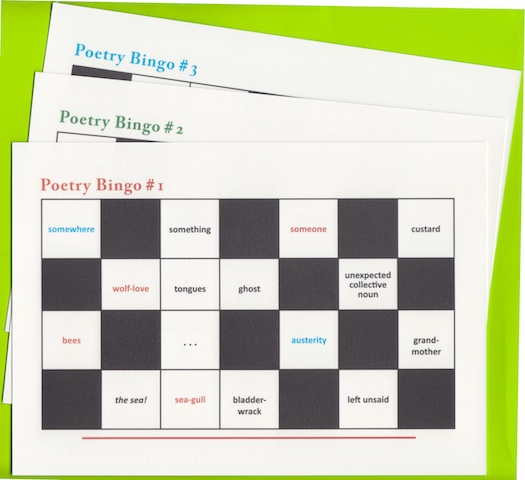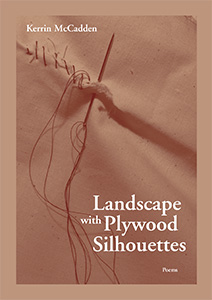‘The Thief’ by Gill Andrews
-Reviewed by Afric McGlinchey–
Gill Andrews delivers a lightness of touch in her chapbook, The Thief, which opens with a poem called ‘The man who paints the bridge’ (a title that reminds me of the simplicity of Wislawa Szymborska ‘People on a bridge’.) The first two stanzas ring with clarity: ‘His left hand holds a can/or dark red oxide paint. His right hand//lowers and lifts the cradle,/ slides it along to the next diagonal.’ But as the poem progresses, a more surreal note slips in: ‘People on Battery Road/set their clocks by him. They measure his beard//to see how long they’ve slept.’ The man who paints the bridge understands his craft intimately, and Andrews captures his work with vivid visual detail: ‘how it barnacles unevenly/how its colour degrades. And the claws/within salt, the sugar in rain.’ The poem becomes more lyrical, meditative, rising to a beautiful climax: ‘He knows/why teals and swans migrate/and the happiness of steel at the hugeness of trains.’
This is an attentive poet, then, and a reflective one. Her next poem, ‘Skein’, is conversational in tone, and starts with a surprising line: ‘What we make is finer than on the Earth.’ Immediately there is intrigue: where are we? ‘Folk can’t fathom us/living up here but there’s not much weaving work/back home nowadays’. One imagines it’s out in space somewhere: ‘it’s all to do/with gravity, and the starlight not being filtered/ by any atmosphere……’
There is a light dusting of humour in many of her poems; wry portrayals of self-satisfaction (‘Is’) or the way the public is so readily judgmental (‘The candidate’). In both these poems, repetition is used to very good effect: ‘You should get one of these….You should have one of these…You should plant some of these…’
There is also the incongruous charm of imagining the speaker in ‘Lawyer’, attaining his dream ‘when all this is over’: ‘I want to lie awake at night/listening to little oinks and snorings,/ eleven siblings in a row alongside their mother’s teats’.
Occasionally, I felt a poem might have been more effective if it had ended earlier, as with the appealingly titled ‘On not being able to phone you because I haven’t got your number’. This poem is two and a half pages long. One would have sufficed, with a potentially powerful final image: ‘mistakes a baggie of heroin for a baggie/of cocaine/and overdoses’.
In her personal poems, such as ‘Greater love’, Andrews makes effective use of dialogue and, again, repetition. The surprise of this poem is on the facing page, where there appears to be a separate, untitled poem, as it begins half way down the page and is justified right. But the linking word ‘remote control’ connects the two – and also gains symbolic meaning in the reading of this second, very poignant section. Another personal poem ‘Pleasure beach’ again uses dialogue to create a sense of suspense and rising panic: ‘No you didn’t. You didn’t ask me. I never heard you ask me./ I was up the arcade I’m sorry I’m sorry I’m sorry I’m sorry.’
Other poems in this chapbook are responses to artworks by Picasso and others, sassy with attitude. One, entitled Caryatids, describes sculpted female figures with ‘marble hips, magnificent/hairdos’, adding ‘There’s nothing//chaste about their robes.’ Andrews uses eclectic sources for her subject matter: for instance, one poem is inspired by a nineteenth century diary entry, while another describes a ‘Rickets Display’ in a museum. Before turning to writing, Andrews was a lawyer. A couple of poems, ‘Workstations’ for example, draw on her experience of this world, where ‘trying not to cry always takes so long.’
The title poem, ‘The Thief’, is an exhilarating and surreal play on words, where each stanza begins with a word from the previous one. ‘Oxygen, you’re the red dress of a thousand sequins/and your hemline has purple round the outside.// Red dress, you’re the bad parent, driving in the small night/to unfamiliar streets and leaving me there without any money.’
Sometimes this chapbook feels a little too mild, or playful for its own sake – but the competence is undeniable and there’s a charm about Andrews’ imaginative world that allows for these small flaws. Throughout ‘Thief’, Andrews shows a light but sure touch, and the colloquial ease with which she handles her subjects ensures that her work is accessible rather than over-poetic. Yet the counter-point to this lightness is what makes her work striking and memorable: the surprise, the turn, where something altogether unexpected happens. Her work is both the ‘singing of sky and scrapings of white cloud.’




